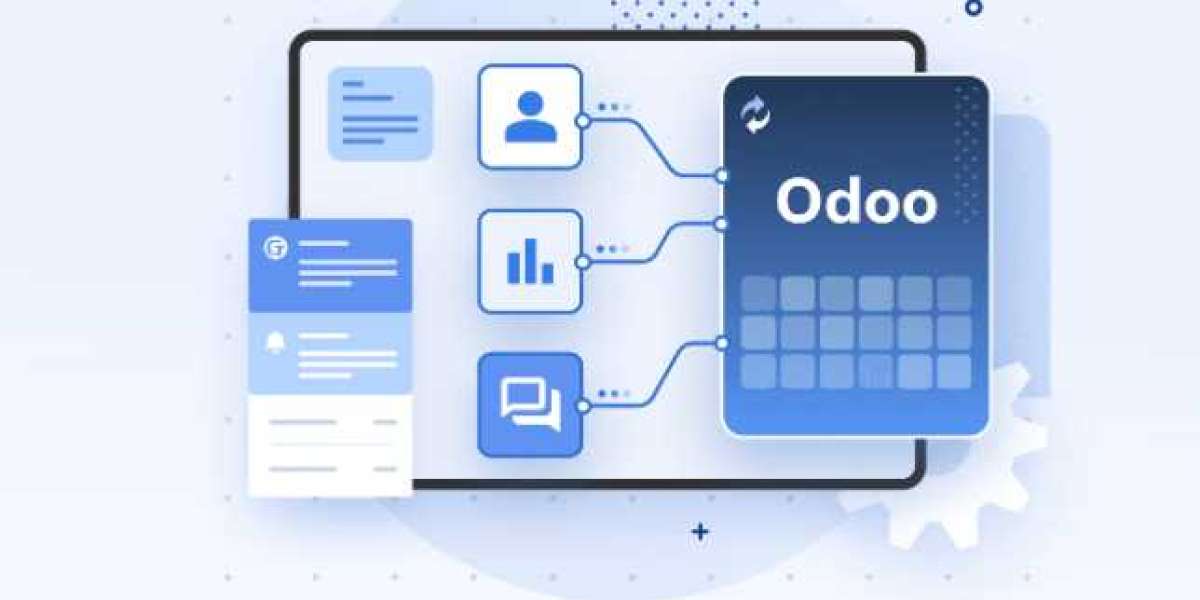In today’s fast-paced business environment, efficiency and accuracy are no longer optional—they are essential. Businesses of all sizes are seeking ways to streamline operations, reduce manual work, and make informed decisions in real time. One of the most effective ways to achieve these goals is by integrating an enterprise resource planning (ERP) system like Odoo with popular accounting systems such as QuickBooks or Xero.
Understanding Odoo and Its Capabilities
Odoo is a comprehensive open-source ERP platform that provides businesses with tools to manage various functions, including sales, inventory, manufacturing, human resources, and accounting. Unlike standalone applications, Odoo offers an integrated approach, enabling different departments to work seamlessly together within a single ecosystem.
Key features of Odoo include:
Modular architecture: Companies can choose modules specific to their needs, such as CRM, eCommerce, Inventory, or Accounting.
Automation: Repetitive tasks can be automated, reducing human error and saving time.
Customizability: Odoo can be tailored to unique business requirements, supporting workflows that suit your operations.
Real-time reporting: With centralized data, businesses can generate accurate reports and insights to make informed decisions quickly.
Despite these robust features, many companies still rely on specialized accounting software like QuickBooks or Xero for financial management. Integrating these systems with Odoo allows businesses to maximize the strengths of both platforms.
Why Integrate Odoo with QuickBooks or Xero?
While Odoo has its accounting module, QuickBooks and Xero are recognized globally for their accounting efficiency, user-friendly interfaces, and compliance features. Integration provides several advantages:
1. Eliminates Data Silos
Data silos occur when information is isolated within one system, making it difficult to access or use across the organization. Integrating Odoo with accounting software ensures that financial and operational data flows seamlessly between systems.
For example, sales generated in Odoo’s CRM or eCommerce module can automatically reflect in QuickBooks or Xero. This eliminates the need for manual data entry and ensures consistency across platforms.
2. Reduces Manual Data Entry and Errors
Manual data entry is time-consuming and prone to errors. Integrating Odoo with accounting systems automates the transfer of invoices, payments, and expense data. Businesses can significantly reduce human errors, ensuring accurate financial records.
Moreover, automation speeds up routine processes such as bank reconciliation, invoice creation, and tax calculations, freeing up staff to focus on strategic tasks.
3. Real-Time Financial Insights
With integration, businesses can access real-time financial data. This enables better cash flow management, informed decision-making, and timely reporting. QuickBooks and Xero provide excellent financial analytics, and when combined with Odoo’s operational data, companies gain a holistic view of their business health.
For example:
Inventory changes in Odoo immediately reflect in financial statements.
Customer payments captured in accounting software are synchronized with sales data in Odoo.
Forecasts and budgets can be adjusted dynamically based on up-to-date information.
4. Improved Compliance and Audit Readiness
Accounting systems like QuickBooks and Xero are designed with compliance in mind, adhering to standards like GAAP or IFRS. By integrating Odoo with these systems, businesses ensure that financial data is consistent, accurate, and ready for audits.
Integration also simplifies tax management. Sales tax, VAT, and other regional tax calculations are automatically updated, reducing the risk of penalties and ensuring regulatory compliance.
5. Enhanced Scalability
Growing businesses often face the challenge of scaling operations while maintaining accurate financial records. Integrating Odoo with QuickBooks or Xero provides a scalable solution.
As your business expands:
Sales and purchase transactions grow, but manual bookkeeping won’t be a bottleneck.
Multi-currency support and international tax management become easier.
Centralized data management supports new branches, teams, or product lines without requiring significant system overhauls.
6. Time and Cost Savings
Time saved on manual processes directly translates to cost savings. With integration:
Accounts receivable and payable processes become faster and more accurate.
Financial reporting and audits require less effort.
Employees can focus on revenue-generating activities rather than repetitive data entry.
Businesses that leverage odoo integration services often see a significant return on investment in terms of operational efficiency and resource optimization.
7. Seamless E-Commerce and Point-of-Sale (POS) Operations
Many businesses use Odoo for eCommerce or POS systems. Integrating with accounting software ensures that every transaction is reflected in financial records without delay. This is particularly important for businesses that process high volumes of sales daily, helping maintain accurate revenue tracking, tax compliance, and financial forecasting.
Practical Scenarios of Odoo Accounting Integration
To better understand the value, consider the following real-world scenarios:
Scenario 1: Retail Business
A retail company uses Odoo for inventory and POS management and QuickBooks for accounting. Without integration:
Every sale needs manual entry into QuickBooks.
Inventory and financial records often mismatch.
Reporting is delayed, affecting decision-making.
With integration:
Sales data from Odoo automatically updates QuickBooks.
Inventory levels, revenue, and profit margins are accurate in real time.
Financial statements and inventory reports are automatically reconciled.
Scenario 2: E-Commerce Enterprise
An eCommerce business operates on Odoo eCommerce and uses Xero for accounting:
Orders from the online store are instantly synchronized with Xero.
Customer payments, refunds, and taxes are automatically recorded.
Accounting staff can generate reports without cross-checking spreadsheets.
The result is faster, error-free financial management and improved customer experience.
Choosing the Right Odoo Integration Approach
There are multiple approaches to integrating Odoo with accounting systems:
1. Pre-Built Connectors
Some integration solutions provide ready-to-use connectors for QuickBooks or Xero. These are ideal for businesses seeking a quick deployment with minimal custom development. Features typically include:
Automatic syncing of invoices, payments, and customers.
Multi-currency support.
Regular updates to maintain compatibility with both platforms.
2. Custom Integration
For businesses with unique workflows or specialized accounting needs, custom integrations offer flexibility. A skilled odoo integration services provider can:
Map your specific data fields accurately.
Automate complex workflows.
Ensure seamless compatibility between Odoo and your chosen accounting system.
3. API-Based Integration
Both Odoo and accounting systems like QuickBooks and Xero provide APIs (Application Programming Interfaces). Using API-based integration:
Businesses can create a fully automated, real-time data sync.
Integration can be extended to other systems such as CRM, POS, or supply chain software.
API integration supports advanced customization, analytics, and reporting.
Selecting an Odoo Integration Service Provider
Successful integration requires expertise in both Odoo and accounting platforms. Here’s what to look for in an odoo integration services provider:
Proven experience: The provider should have a track record of integrating Odoo with QuickBooks, Xero, or similar systems.
Technical expertise: Knowledge of APIs, automation tools, and data mapping is essential.
Customization capabilities: Integration should be tailored to your business processes.
Support and maintenance: Post-integration support ensures that the system remains updated and issues are quickly resolved.
Security focus: Handling financial data requires strict security protocols to protect sensitive information.
Partnering with an experienced provider like GloriumTech can streamline the integration process, reduce risks, and accelerate ROI.
Overcoming Common Integration Challenges
While integration offers numerous benefits, businesses may face challenges such as:
Data inconsistencies: Ensuring that historical data is clean and compatible.
System incompatibilities: Some older accounting software versions may not support modern APIs.
Workflow disruptions: Transitioning from manual processes to automated systems requires staff training.
Working with a trusted odoo integration services provider ensures that these challenges are mitigated with expert planning, testing, and support.
Conclusion
Integrating Odoo with accounting systems like QuickBooks or Xero is more than a technological upgrade—it’s a strategic decision that can enhance efficiency, accuracy, and scalability. From eliminating manual data entry to providing real-time insights, this integration empowers businesses to operate smarter and grow faster.
Whether you are a small enterprise seeking operational efficiency or a large organization managing complex financial workflows, leveraging odoo integration services is the key to unlocking the full potential of your business ecosystem.
The future of business operations lies in connected systems, and Odoo integration with top-tier accounting platforms is a crucial step toward achieving seamless, automated, and efficient financial management.








